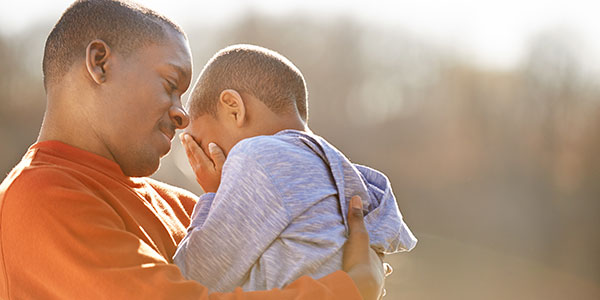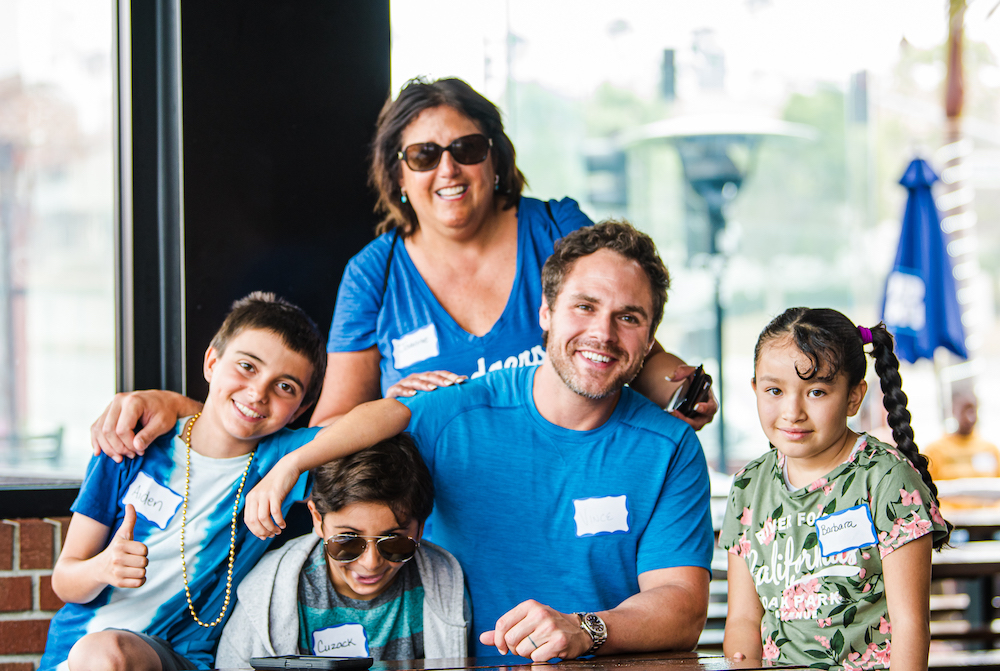How Grief Impacts Children
When you’ve lost a loved one, the holiday season can be especially painful. Before graduating from high school, 1 child in every 20 will experience the death of a parent. This statistic doesn’t include the children who experience a different kind of loss— the death of a sibling, a grandparent, friend, or other loved one.
Once children experience the death of a loved one, their lives are transformed forever. Though they will eventually grow and learn to manage their pain, most children will forever feel set apart and different from their peers. Many will feel that words can never truly express what cancer has done to their family.
All The Difference – How Support Can Help
Children’s Grief Awareness Day seeks to bring attention to the fact that often support can make all the difference in a grieving child’s life. It provides an opportunity for all of us to raise awareness of the painful impact that the death of a loved one has in a child’s life, an opportunity to make sure that these children receive the support they need.
Many people don’t realize that it takes most children much longer to deal with their grief than we expect and that the amount of inner turmoil, invisible to most, is much more intense than we have any idea of. We raise awareness so that people will understand that a grieving child can’t just “get over it”—not in any set time, not by any act of their own will—and that there’s no reason that they should just “get over it.”
Often, people may not recognize the many different ways that children grieve. In some cases, children might feel like they’re not allowed to grieve–because we think they cannot understand or we wish to protect them–and ourselves.
Walk With Sally Is Here To Support
For the past 15 years, Walk With Sally aims to support children and teens who are grieving from a cancer diagnosis trauma in their family. Walk With Sally provides hope through individualized mentoring and community support services to empower children experiencing trauma through a parent, guardian, or sibling’s cancer journey.
 Mentoring, at its core, lets young people know that there is someone who cares about them, assures them they are not alone in dealing with day-to-day challenges, and makes them feel like they matter.
Mentoring, at its core, lets young people know that there is someone who cares about them, assures them they are not alone in dealing with day-to-day challenges, and makes them feel like they matter.
“The most important and consistent thing is that my child knows he has someone on his side, just for him, that he can talk to openly and honestly about the things that are on his mind. And if nothing is on his mind, his mentor is still there. It’s not just about the fun. Like any relationship, the true testament knows that person will always be there for you. To put it simply… Trust.
What Walk With Sally Community Is Saying
“He used to feel alone and isolated like no one cared or understood what he was going through. That has changed. Now he can engage with his regular friends without expecting them to share in his experience.” – Danette, Rocco’s Mom
When children experience the death of a person who has played a significant role in their life, it is normal for children to struggle, whether the relationship with that person was caring and loving or contentious and challenging. The absence of a person takes time to accept fully, and even then, children may continue to miss them in their unique way.
“Knowing that Walk With Sally cares brings my children a smile.” – Mom of our mentee
“It’s been a hard year to adjust from 0 to 3 kids. But also I know they need a lot of attention because they have 1 year and 4 month losing their mom”. – Mom of youth in our program
“It’s such a good feeling to know that you guys care for us, thank you so much”- Family in our program.
Allowing children to share feelings openly can help normalize this experience and help them find ways to deal with these powerful feelings that will come and go and come back again throughout their lives. In truth, children never “get over” a person’s death, but they can learn to live with reality. Grief is not a problem we are trying to fix for a child; it is an experience they are living.




